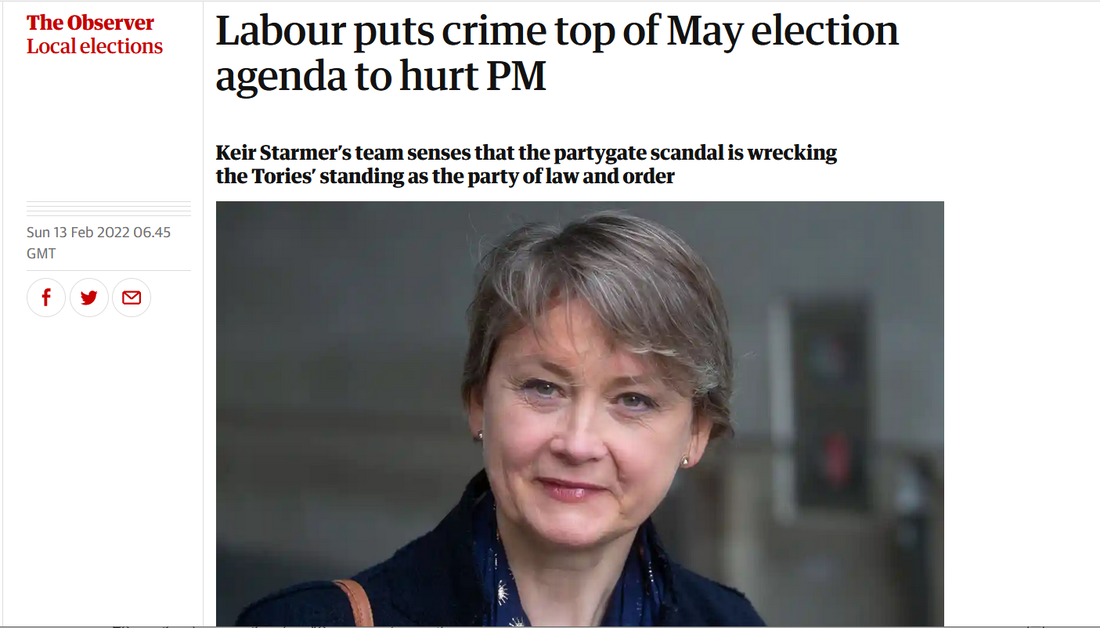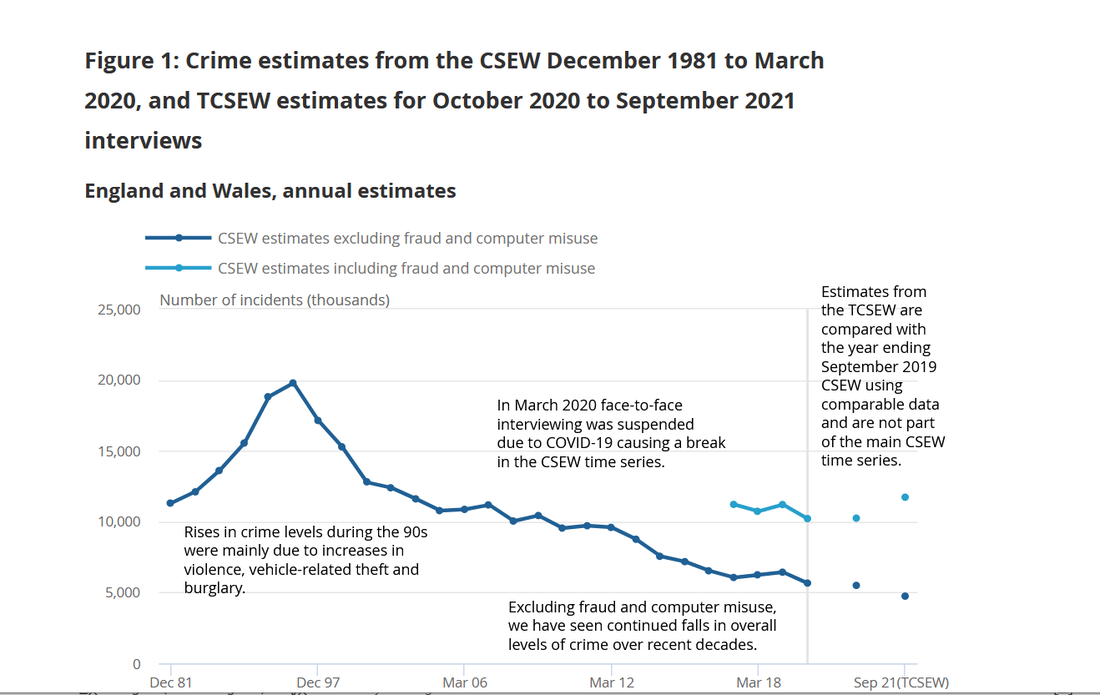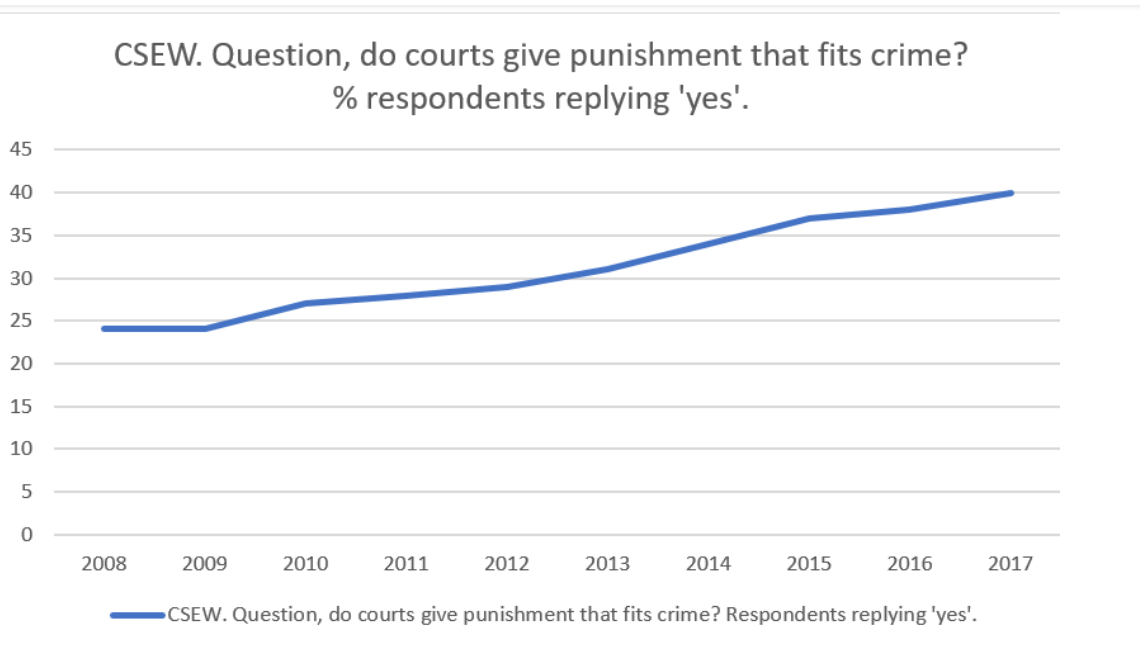|
“A party which cynically encourages people to think the crime is rising when in fact it is falling, which preys on and encourages public fear of crime for party political advantage, which agitates for ever longer prison sentences is despite the total lack of evidence that this does any good, and which supports an unending increase in the size of our prison system, already the largest in Europe, at vast cost of the tax payer, and so prevents any progress in reducing prison overcrowding or closing insanitary old prisons." No, I'm not referring to the Tory party. This is ‘New’ New Labour. Which has in recent years outbid the Tories in legislating to increase the length of prison sentences, which created the hideous cruelty of the indeterminate sentence of imprisonment for public protection (IPP), and which has never, ever mustered the courage to criticise the fact that we are the highest user of imprisonment of any western European state (to find politicians who have had that courage, look to the SNP). And which has the proud boast, under Blair, of presiding over the steepest rise in the prison population in history, and the fastest prison building programme in history. Out Howarding Howard. We have now Labour’s cynical, damaging plan to fight the forthcoming local elections on the issue of crime. Cynical, because it seeks to make a nonsensical link between the PMs personal contempt for law as revealed in the ‘partygate’ scandal, and the issue of crime on your street. Damaging, because it rests on the deceit that crime is a rising problem for our people. It is not. Crime is, demonstrably, a much lesser problem than at anytime in the past 50 years. Here are the figures. There are two measures of crime. Until the 1990s, the only measure was the crime that the police recorded. Painstaking investigation expose this to be very unreliable, because heavily influenced by how far people bothered to report crime, and how far the police chose to record it. It was shown that there were huge variations in both, over time and locally. In its place was developed that British Crime Survey (BCS) which rested on annual sample surveys of the general population to ask people what their actual experience of crime as victims had been in the previous year. It was quickly established that this was a far more accurate measurement of crime then police data, except for so called ‘victimless’ crime such as drug abuse, and small volume crimes such as homicide. Note: figures for 2020 on affected by lockdown. Changed methodology in those years means comparison with previous years requires adjustements. What this data shows is an astonishing reduction in crime in this country over the past quarter century. Astonishing in the size of the reduction, astonishing in the sustained fall over such a long period. There has been a much speculation about the course of this fall. Suffice it to say, no one knows why, but the since it occurred in many different countries with entirely different crime policies, it is clearly a deeply seated cultural and social change, and not the result of government policies. The result is that you are less likely to be a victim of crime no then at anytime since, probably, the 1960s. Even better than that: although the public tend to believes that crime is rising even when it is in fact falling, and that the risk of falling victim of crime is greater than it is in reality, and that sentencing is more lenient than it actually is - all results of the wonderful work done by right wing politicians and their right wing tabloids over many years - this fall in crime has been so great, so sustained, that fear of crime has fallen dramatically. Crime has dropped off the list of issues which the public tell pollsters are causing them concern. The public is even becoming more satisfied that the courts are imposing appropriately tough sentences. Polls asking what are most important issues facing country, % mentioning 'crime', IPSOS and YouGov. Note: for IPSOS, two lines are given, the highest level recorded in any one year, and the lowest Hurray! You might think. But not if you're a politician. For fear of other people, criminals or immigrants, and a general sense of insecurity and dread, are vital tools for politicians. You're much less likely to notice huge growth in inequality and poverty in this country, for example, if you're made to be terrified of going out into your street, and therefore grateful to the government for appearing to ‘crackdown’ on crime, even if the crackdown can be demonstrate to be useless.
Such cynical tactics are generally associated with the Right. However Labour under Starmer reaches a new low with the launch of a campaign to mobilise crime as an issue in the forthcoming local elections. To do so, they must pretend the crime is increasing. They are able to do so only because of the growth in computer crime and fraud. With those figures included, crime has increased by 8%. But without those specialised form of crime, we would be reporting a fall of 8% (which is what Johnson and Patel trying to claim come up before they were found out). I'm not suggesting that fraud or computer crime are unimportant, though in many cases there is no loss or the loss small, or if not small is borne by banks. But in terms uh the sort of crime that principally worries people, such as rape or other sexual offences, robbery, burglary, serious assault, crime is not rising. And what is Labour's big idea to deal with this artificially inflated problem – apart, that is, from outbidding the Tories in ever increasing use of imprisonment and in every expanding prison system? According to this article it is ‘police hubs’. What's that, you ask? Well it's not terribly clear, but this other article suggest that it's our very old friends, neighbourhood policing, special constables, more crime prevention, 'more coppers on the beat'. In other words, doing again what has been done so many times before, without any new ideas at all. Oh that's not entirely fair. Video door bells. Hurray! In this field, as in so many others, neither Labour nor any other politician has had any significant new ideas for years and years. Perhaps, given the unspeakable cruelty of Labour’s IPP sentence, we should be grateful for that lack of ingenuity. But there is scope for new approaches - for example the lamentable arrangements for reporting and dealing with fraud, under which no one does anything much to investigate 99% of frauds, ensures that hardly anyone is ever brought to justice. That would be easy to change, by making someone responsible for dealing with fraud (extraordinarily, they aren’t, now.) On computer crime, there are technical and other solutions which could reduce risk. But the problem, politically, is those crimes don't generate enough fear to be useful to politicians. While other radical ideas, such as partial decriminalisation of possession of drugs, adopted in other European countries, or diversion of petty offenders into types of ‘social resolution’, are thought too risky. And in preference Labour concentrates on encouraging fear of crime, that is completely out of sync the actual state of our streets and of our society. Bereft of new ideas, intent on apeing the Tories on many issues, afraid of seeming radical, its mindset stuck firmly in the 1990s, Labour do not deserve to win power and if they do, will achieve very little. This country has so many terrible, deep seated and intractable problems, end with a constantly declining rates of economic growth, less and less scope to fund solutions. But the real tragedy of this country is that we no longer produce leaders of courage, thoughtfulness and integrity. And sadly, that's just as much true of Labour as of the Tories.
0 Comments
Your comment will be posted after it is approved.
Leave a Reply. |
I was formerly Finance Director of the Prison Service and then Director of the National Offender Management Service responsible for competition. I also worked in the NHS and an IT company. I later worked for two outsourcing companies.
Archives
January 2023
Categories
All
Click below to receive regular updates
|




 RSS Feed
RSS Feed